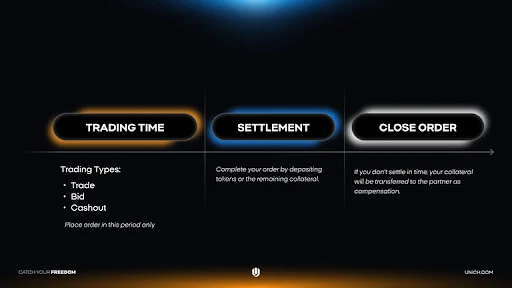Introduction
Pre-market Over-the-Counter (OTC) trading, often conducted through peer-to-peer (P2P) mechanisms, allows investors and traders to buy and sell tokens before their official listing on exchanges or Token Generation Event (TGE).
This emerging practice in the cryptocurrency and blockchain space provides early access to promising projects, offering opportunities for high returns alongside notable risks.
This article explores the mechanics, benefits, risks, and best practices of pre-market OTC trading.
What is Pre-Market OTC Trading?
Pre-market OTC trading refers to the exchange of tokens directly between parties, typically before the tokens are listed on centralized or decentralized exchanges.
Unlike traditional exchange-based trading, OTC trades are negotiated privately, often facilitated by brokers, escrow services, or P2P platforms.
These trades occur in the pre-market phase, which spans the period before a project's TGE or public listing, when tokens are often distributed to early investors, team members, or private sale participants.
Key Characteristics
- Direct Negotiation: Buyers and sellers agree on price, quantity, and terms without relying on an order book.
- High Flexibility: Trades can be customized to meet the needs of both parties, including lock-up periods or vesting schedules.
- Early Access: Investors gain exposure to tokens before they become widely available, potentially at lower prices.
- Limited Liquidity: Pre-market tokens are often illiquid, as trading is restricted to private agreements.
Why Engage in Pre-Market OTC Trading?
Pre-market OTC trading has gained traction due to its unique advantages, particularly for sophisticated investors and early adopters in the crypto space.
Benefits
- Early Investment Opportunities: Investors can acquire tokens at discounted rates compared to post-listing prices, potentially yielding significant returns if the project succeeds.
- Access to High-Potential Projects: Pre-market trading allows participation in projects with strong fundamentals before they gain mainstream attention.
- Customized Deals: OTC trading enables tailored agreements, such as staggered payments or token vesting, to align with both parties' goals.
- Portfolio Diversification: Adding pre-market tokens to a portfolio can diversify risk, especially for investors seeking exposure to emerging technologies.
Risks
- High Volatility and Speculation: Pre-market tokens are subject to extreme price swings, as their value is often driven by hype rather than established metrics.
- Liquidity Challenges: Tokens may be locked or restricted, limiting the ability to sell until listing or TGE.
- Counterparty Risk: Without trusted intermediaries, there’s a risk of fraud or non-delivery of tokens.
- Regulatory Uncertainty: Pre-market trading may fall into legal gray areas, depending on the jurisdiction and token classification (e.g., security vs. utility token).
- Project Failure: Many early-stage projects fail to deliver, rendering tokens worthless.
How Pre-Market OTC Trading Works
The process of pre-market OTC trading typically involves the following steps:
- Identifying Opportunities: Buyers research projects in their pre-market phase, often through industry networks, private sale announcements, or OTC platforms.
- Finding a Counterparty: Sellers, such as early investors or team members, are located via brokers, P2P platforms, or direct connections.
- Negotiating Terms: Both parties agree on price, token quantity, payment method, and any conditions (e.g., lock-up periods or escrow use).
- Executing the Trade: Payment is made, and tokens are transferred, often through a smart contract, wallet-to-wallet transfer, or escrow service to ensure security.
- Post-Trade Management: Buyers hold tokens until listing or TGE, monitoring project developments and market conditions.
Tools and Platforms
- OTC Desks: Specialized firms or brokers facilitate large-volume trades, ensuring privacy and security.
- P2P Platforms: Platforms like LocalBitcoins or dedicated token trading groups enable direct P2P trades.
- Escrow Services: Third-party services hold funds or tokens until both parties fulfill their obligations.
- Smart Contracts: Blockchain-based agreements automate and secure token transfers.
Best Practices for Pre-Market OTC Trading
To navigate the complexities of pre-market OTC trading, consider the following guidelines:
- Conduct Thorough Due Diligence: Research the project’s whitepaper, team, roadmap, and tokenomics to assess its viability.
- Verify Counterparties: Work with reputable brokers or platforms, and use escrow services to mitigate fraud risks.
- Understand Token Restrictions: Clarify any lock-up periods, vesting schedules, or transfer limitations before trading.
- Stay Informed on Regulations: Consult legal experts to ensure compliance with local laws, especially regarding securities regulations.
- Diversify Investments: Spread capital across multiple projects to reduce the impact of potential failures.
- Secure Transactions: Use multi-signature wallets or trusted escrow services to protect funds and tokens.
The Future of Pre-Market OTC Trading
As the cryptocurrency market matures, pre-market OTC trading is likely to evolve. Increased regulatory clarity could legitimize the practice, attracting institutional investors. Meanwhile, advancements in blockchain technology, such as decentralized OTC platforms and automated escrow systems, may enhance transparency and security. However, the inherent risks of early-stage investments will remain, underscoring the need for caution and expertise.
Conclusion
Pre-market OTC trading offers a unique opportunity to engage with promising blockchain projects before they hit the public market.
While the potential for high returns is alluring, the risks of volatility, illiquidity, and project failure demand careful consideration.
By conducting thorough research, leveraging trusted intermediaries, and adhering to best practices, traders can navigate this dynamic space with greater confidence.
As the crypto ecosystem continues to grow, pre-market OTC trading will remain a vital avenue for early adopters seeking to shape the future of finance.

